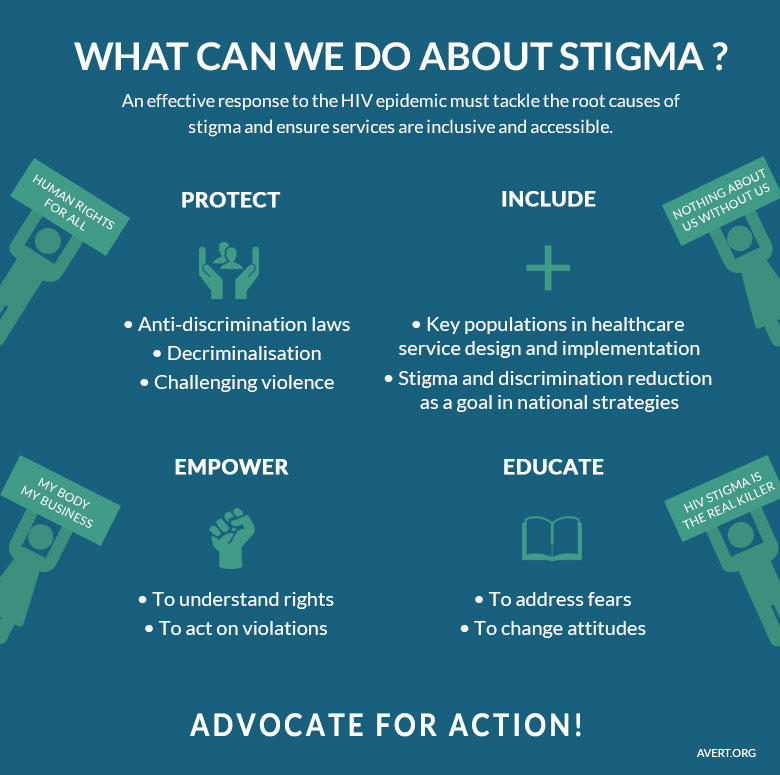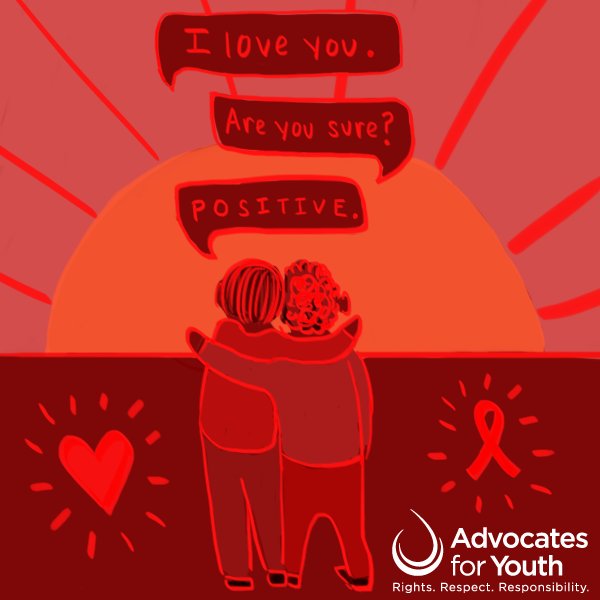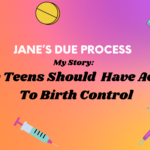Image from Advocates for Youth
By Zoë Fay-Stindt, Literary Women in Action
Advancements in medicine and awareness about HIV/AIDS have come a long ways since it first broke out in the 80’s. Over a million people in the U.S. are living with HIV today, and when treated early with antiviral medication, those with HIV can live just as long as those without HIV. However, talking about HIV/AIDS can still be scary because of continued stigma. If you’re having sex, talking about and getting tested for HIV is part of the package, and it’s important to stay on top of your health. Teens can consent to HIV testing without parental consent at any clinic.
For those who test positive, treatment plans have progressed so much that with medication, the virus is effectively impossible to pass on to a sexual partner. As the Afiya Center points out, though, “Due to lack of health insurance, HIV-related stigma and other comorbid conditions, every person does not get the opportunity to experience the advances in HIV-related care.” In the U.S., certain groups are overrepresented among those living with HIV, due to societal shame and intersecting historical oppressions. Gay and bisexual men are the most at risk. Black men & Black women are disproportionately affected – in Texas, the rate of Black women living with HIV is 14 times that for white women. Every sexually active person is at risk for HIV, so it’s vital to get tested regularly — you can’t fight a virus you don’t know you have.
To get those antiviral medications to protect yourself & your partners, you have to know your rights & get tested. Teens can consent to HIV testing & treatment without parental consent, and there is a list of low-cost clinics available here. For those without insurance, there is help to pay for HIV treatment as well.
In honor of national AIDS awareness month, we’ve compiled some resources on tackling HIV prevention, managing HIV, and helping break down the stigma surrounding the virus.
Preventing HIV/AIDS:
- Get tested. Before you have sex, get tested for HIV and make sure your partner has been tested, too, and make sure you do so with each new partner. To find a testing location near you, try this locator from the Centers for Disease Control and Prevention or text your zip code to KNOW-IT (566948).
- Talk to your partner about your boundaries before you have sex.
- Use a condom. HIV often spreads through semen, pre-seminal fluids, rectal fluids, and vaginal fluids. Using a condom is the only contraceptive that protects against transmission during sex.
- Get tested and treated for STDs. Having an STD can increase your risk in contracting HIV, so make sure you’re staying on top of testing for other types of sexual transmitted diseases.
- Take preventative medication if you are at risk. Talk to your doctor or an STD clinic near you about pre-exposure prophylaxis (PrEP) or post-exposure prophylaxis (PEP). For those at high risk of contracting HIV, PrEP, also known as Truvada, works to prevent infection. PEP is like Plan B for HIV – it can prevent infection up to 72 hours after exposure.
- Be cautious with needles. After sex, needles are one of the most common ways of spreading HIV. Don’t inject drugs into your bloodstream using needles — if you do, only do so using sterilized needles. Don’t share. Outside of sex, this is second most common way HIV spreads.
Managing HIV/AIDS:
- Start a treatment plan. Since the discovery of HIV in 1983, treatment of the disease has come a long way, and millions of people live happy, healthy lives with HIV. Help for low-income Texans with HIV is available through the Texas HIV Medication Program. To find a doctor near you who specializes in treating HIV, call the Centers for Disease Control and Prevention: 1-800-232-4636.
- Take care of your mental health. While so many HIV positive people lead good lives, adapting to the disease is a process, and looking for external help is a great idea. For more support finding the right doctor, treatment, counseling, and other help managing HIV, visit HIV.gov, or see VICE’s resource for people of color and queer folks, who often come across more barriers to finding mental health care. If you are in North Texas, the Afiya Center offers support for Black cisgender & transgender women living with HIV.
Breaking the stigma:
Because of all the advancements in treatment and care for HIV, sometimes the biggest hurdle isn’t living with the disease itself, but facing the world’s stigma. Much of the stigma — in other words, the discrimination, prejudice, or negative attitudes towards those living with HIV/AIDS — has developed from myths or misinformation about the disease, how it’s transmitted, and what life with HIV looks like.
Often, the stigma can prevent people from seeking care for HIV due to society’s treatment of the disease. As an ally or HIV positive person, you can help break down the stigma by supporting anti-discrimination laws, doing your own research to understand HIV and the rights of those with HIV, and educating those around you, to name just a few things.

Photo: https://www.avert.org/professionals/hiv-social-issues/stigma-discrimination
AVERT has great information on different kinds of HIV stigma and ways to dismantle them.
Local resources:
- The Afiya Center was founded in response to a lack of resources for marginalized Texas women living in poverty and at high risk of contracting HIV. Working through the reproductive justice framework, the center aims to end HIV in the Black community, as the rate of Black women with HIV is six times higher than Hispanic women, and thirteen times higher than White women.
- The Wright House Wellness Center. The Wright House was started to care for Central Texans living with, at risk of, or affected by HIV, AIDS, and Hepatitis C, with the goal of improving quality of life. No one seeking help will be turned away if they are unable to pay.
- AIDS Services of Austin works to both prevent HIV transmission and support those living with HIV, offering legal and health insurance assistance, counseling, and more. Visit asaustin.org for more.
- The Kind Clinic offers PEP, PrEP, HIV, and STD testing in Austin, and is committed to the LGBTQ community & to providing gender affirming care.
- Support and resources for HIV are widespread. For a more comprehensive list, check out The Chronicle’s compilation of Austin resources for those living with or at risk of contracting HIV, or the Texas HIV Medication Program for those outside of Austin.
Getting tested for HIV is an important part of a healthy sex life – you can always call our hotline at 866-999-5263 if you want help finding a free clinic near you.




